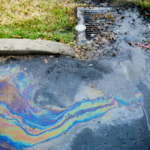In In re Illinois National Insurance Co., the Texas Supreme Court held that disclaiming insurers were not bound by any underlying settlement agreement, entered into without the insurers’ consent, where the claimants promised not to pursue the insured’s non-insurance assets. The underlying claimants were investment funds that filed suit in 2014 against Cobalt International Energy and its officers and directors. The claimants asserted securities fraud in connection with ... Keep Reading »
Pollution/Pollutant
Divided Ninth Circuit Finds Toxic Dust From Wildfire Is Not “Pollutant” Under Policy’s Pollution Exclusion
In Wesco Insurance Co. v. Brad Ingram Construction, the Ninth Circuit Court of Appeals reversed a summary judgment ruling in favor of Wesco Insurance Co. after a split panel concluded that toxic dust and debris from a wildfire did not fall under the policy’s definition of “pollutant.” Background and Underlying Action The plaintiff in the underlying lawsuit, Richard Vargas, was allegedly exposed to toxic dust while loading and unloading his work truck during the ... Keep Reading »
Explosives Manufacturer’s Pollution-Related Claim Blown Up by State-Specific Endorsement
In Dyno Nobel v. Steadfast Insurance Co., the Tenth Circuit Court of Appeals recently held that, under Utah law, where a specific state is listed in an endorsement heading, coverage under the endorsement is limited to claims that have a nexus with that state, so long as such a reading is consistent with the body of the endorsement and policy text. Dyno Nobel is an explosives manufacturer with its principal place of business in Utah. It purchased a commercial general ... Keep Reading »
Fifth Circuit Holds No Liability Coverage for Negligence Claim Premised on Allegations of Intentional Conduct
In Gold Coast Commodities, Inc. v. Crum & Forster Specialty Insurance Co., issued May 22, 2023, the U.S. Court of Appeals for the Fifth Circuit held that a pollution liability policy did not provide coverage for a negligence claim premised on allegations of intentional conduct. In Gold Coast, the insured, Gold Coast Commodities sought defense and indemnity coverage for an underlying lawsuit filed against it by the city of Brandon, Mississippi. In that lawsuit, the ... Keep Reading »
11th Cir. Affirms That Georgia’s Implied Waiver Doctrine Cannot Be Used to Create Coverage
In Century Communities of Georgia LLC v. Selective Way Insurance Co., the Eleventh Circuit Court of Appeals affirmed that the Georgia Supreme Court’s 2012 opinion in Hoover v. Maxum Indemnity Co. does not apply to “coverage defenses” — that is, whether a loss is potentially covered under a policy in the first place. Rather, under Hoover, only certain “policy defenses,” meaning whether a procedural condition of the insurance contract has been fulfilled, may be subject to ... Keep Reading »
An Equitable Exception To the Four Corners Rule: The Eleventh Circuit Looks Beyond Operative Complaint To Find No Duty To Defend
Under Florida law, similar to that of other states, an insurer’s duty to defend is generally determined solely by the allegations found within the four corners of the complaint. Florida courts, however, recognize an exception to that general rule and will allow for the consideration of extrinsic undisputed facts, which, if pled, would place the claim outside the scope of coverage. The Eleventh Circuit recently applied this exception in BBG Design Build, LLC v. Southern ... Keep Reading »
The Conflict Between Choice-of-Law Provisions in Insurance Policies and a State’s Fundamental Public Policy
Many contracts include a choice-of-law provision in which the parties agree to use a particular jurisdiction's set of laws to govern the contract. These provisions promote predictability. No matter where a dispute may arise under the contract, the contract will always be interpreted under the laws of the chosen jurisdiction. This practice of including choice-of-law provisions extends to policies of insurance. However, these choice-of-law provisions are not always ... Keep Reading »
Clearing the Air: Tenth Circuit Strikes Down an Indoor Air Quality Exclusion, Citing Ambiguity
Ambiguity strikes again. While the heavily litigated pollution exclusion is well-known in the insurance world, its progeny—the indoor air exclusion—only recently has started making its way around the block. Insurers should be aware of the trend in cases holding that indoor air quality exclusions are ambiguous. Such holdings are resulting in courts applying a strict and narrow construction. For example, in Siloam Springs Hotel v. Century Sur. Co., No. 17-6208 (10th Cir. ... Keep Reading »
New York’s Highest Court Rejects ‘Unavailability of Insurance Exception’ Under ‘Pro Rata Time on the Risk Allocation’
On March 27, the New York Court of Appeals unanimously ruled that under a “pro rata time on the risk allocation,” insurers are not liable for years outside their policy periods when there was no insurance available to the insured in the marketplace. See KeySpan Gas East Corp. v. Munich Re. Am., Inc., 2018 N.Y. Slip Op. 02116 (N.Y. Mar. 27, 2018). The decision is a significant victory for insurers faced with long-tail environmental claims, and may also lend support to ... Keep Reading »
Poisoning the Well: Washington Supreme Court Applies Efficient Proximate Cause to Eviscerate Pollution Exclusion in Liability Policy
Professionals and practitioners in first party property insurance are likely familiar with the efficient proximate cause rule, which requires an insurance policy to provide coverage where "a covered peril sets in motion a causal chain," even if subsequent causes-in-fact of the loss are excluded by the policy. As indicated by our previous coverage [1, 2, 3] of this doctrine, this can be a confusing analysis that leads to unpredictable results. Until recently, the ... Keep Reading »









